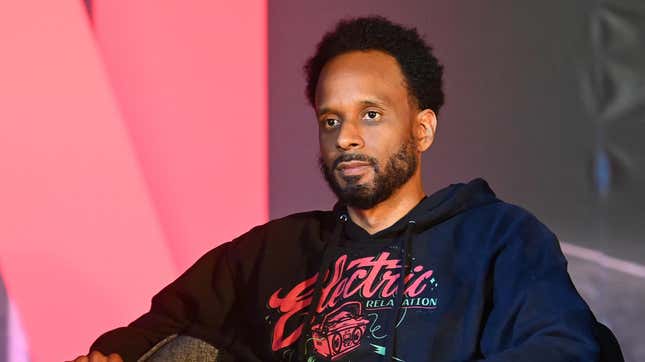
Too much of anything is bad for you. Excessive amounts can be catastrophic. Dan Le Batard hinted at this a few months ago. And after the reported cancellation of Bomani Jones’ Game Theory on HBO, it’s become quite clear — “embrace debate” killed sports television shows.
Back in March, Le Batard said the quiet part out loud when he told Stephen A. Smith to his face that he “hate(s) what you two have done to sports television,” when Smith appeared on Le Batard’s South Beach Sessions podcasts, referring to the “embrace debate” format that Smith and Skip Bayless made popular. “I’m talking about all the imitators that you’ve birthed that are all over the place without the journalism credentials, that the point of all of this is to turn it into an argument on television,” Le Batard added.
For some odd reason, viewers — and the powers that be — are still entertained by and have stuck to the idea that being loud and wrong, while yelling at the person sitting across from you is what makes “good TV” in sports. Context, nuance, facts, and intelligence are out, garbage hot takes without any middle ground are in — and have been for way too long. Shows like Outside the Lines, High Noon, E:60, and The Sports Reporters would never survive in this era, which is ridiculous when you realize those programs are needed now more than ever.
Instead, we have what Bayless keeps doing at FS1, and whatever that network will continue to do with Emmanuel Acho — the perfect example of someone who only comes off as smart to stupid people because smart people know how dumb he truly is. And over at ESPN, Chris “Mad Dog” Russo recently signed a contract extension to keep screaming idiotic takes that somehow always feel racist, while Pat McAfee’s goal is to make sure that “mass exits” never happen again at ESPN, as he believes that a show that was once a haven for Aaron Rodgers to spew his fake news can save an entire network.
The reports of HBO canceling Jones’ Game Theory after two seasons mostly due to low ratings was a gut punch to fans who care about things more important than box scores or prefer conversations about sports that aren’t as low-level as the ones that take place in barbershops. It was also an indicator that viewers lie when they say they want something fresh or different. Because if that was the case, they’d tune in.
“If the first thing they say about our TV show is how smart it is, we’re all going to get fired,” Jones told The Ringer in 2018 as his old ESPN Show High Noon was set to air. “Smart is only something people dig if it provides them some sort of value. So me being smart for its own sake, that don’t really go anywhere,” he told The Ringer four years later.
Embrace debate has made people so dumb that smart isn’t valued anymore — which is what Le Batard’s point was all about.
“He’s unlike any voice in sports journalism and it’s so hard to be distinctive at the ‘hot take’ trough,” Le Batard said of Jones in 2015. “It’s so hard to be a unique voice and a unique thinker when so many people are gasbagging.”
“He’s a lucid thinker. His points have a beginning, middle, and end,” Bob Costas said of Jones last year.
If you’ve gotten this far into this column, then, thanks for reading. However, I want to make it clear that this isn’t about Bomani Jones — but what Bomani Jones represents, as his show’s cancellation is an example of what viewers actually want, instead of what they say they want.
Sometimes sports can be really serious. Other times they can just be what they are — games. There should be a place for both sides to exist, and talking heads getting on TV just to yell takes at each other that usually lack context, and facts, only serve one side. In the media, be it good, or bad news, what tends to dominate is what people tune into/read the most. It’s basic supply and demand. So the next time you’re wondering why the news is so depressing, and why sports shows all suck, it’s because you’ve made it that way.